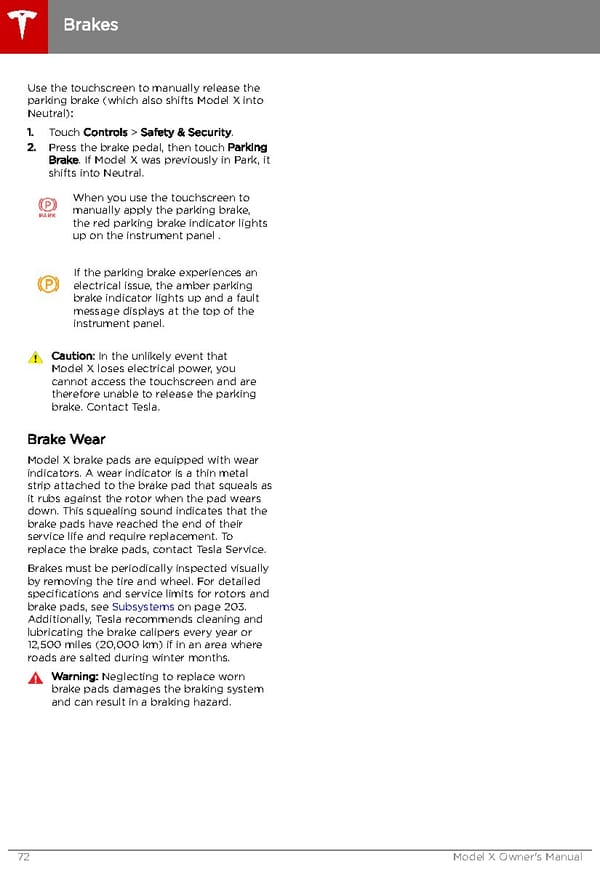Brakes Use the touchscreen to manually release the parking brake (which also shifts Model X into Neutral): 1. Touch Controls > Safety & Security. 2. Press the brake pedal, then touch Parking Brake. If Model X was previously in Park, it shifts into Neutral. When you use the touchscreen to manually apply the parking brake, the red parking brake indicator lights up on the instrument panel . If the parking brake experiences an electrical issue, the amber parking brake indicator lights up and a fault message displays at the top of the instrument panel. Caution: In the unlikely event that Model X loses electrical power, you cannot access the touchscreen and are therefore unable to release the parking brake. Contact Tesla. Brake Wear Model X brake pads are equipped with wear indicators. A wear indicator is a thin metal strip attached to the brake pad that squeals as it rubs against the rotor when the pad wears down. This squealing sound indicates that the brake pads have reached the end of their service life and require replacement. To replace the brake pads, contact Tesla Service. Brakes must be periodically inspected visually by removing the tire and wheel. For detailed specifications and service limits for rotors and brake pads, see Subsystems on page 203. Additionally, Tesla recommends cleaning and lubricating the brake calipers every year or 12,500 miles (20,000 km) if in an area where roads are salted during winter months. Warning: Neglecting to replace worn brake pads damages the braking system and can result in a braking hazard. 72 Model X Owner's Manual
 Tesla Model X | Owner's Manual Page 72 Page 74
Tesla Model X | Owner's Manual Page 72 Page 74